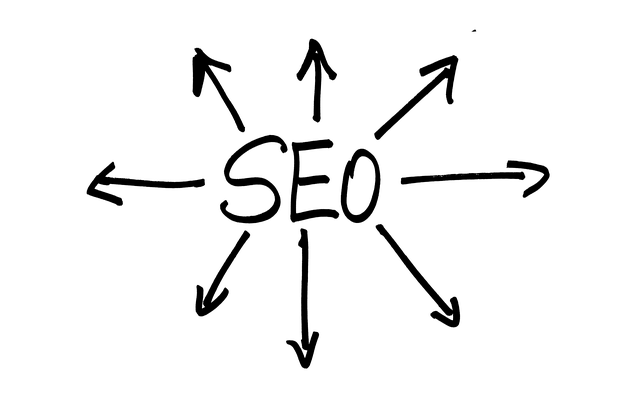SEO Basics offers strategies to enhance website visibility on search engines. By optimizing keywords, metadata, backlinks and user experience, it attracts organic traffic. Key steps include keyword research, on-page optimization (titles, headings, content), off-page building (authoritative backlinks), technical considerations (site structure, speed), local SEO (Google Business Profile) and analytics tracking. Staying current with updates and adapting to trends is crucial for sustained growth.
Whether you’re a digital beginner or looking to sharpen your skills, this SEO Fundamentals Bootcamp is your guide to mastering search engine optimization. From unraveling the basics and keyword magic to navigating technical intricacies and local visibility, we break down essential strategies for long-term growth. Learn on-page tricks, off-page building blocks, analytics insights, and staying ahead in a dynamic landscape. Get ready to transform your online presence!
What is SEO? (Understanding search engine optimization and its significance)

Search Engine Optimization, or SEO, is a set of strategies and practices designed to enhance a website’s visibility in search engine results pages (SERPs). It involves understanding how search engines crawl, index, and rank web content to ensure your site appears higher in relevant searches. By optimizing various elements such as keywords, metadata, backlinks, and user experience, SEO aims to attract organic traffic from search engines like Google, Bing, or Yahoo.
At its core, SEO revolves around providing valuable, relevant, and high-quality content that meets the needs of users searching for specific information. Search engines use complex algorithms to analyze websites, considering factors like keyword usage, page loading speed, mobile responsiveness, and the overall authority and trustworthiness of the site. Effective SEO practices not only help improve a website’s ranking but also enhance its online presence, drive targeted traffic, and ultimately contribute to business growth in today’s digital landscape.
Keyword Research: The Cornerstone of SEO (Identifying relevant keywords for your content)

Keyword Research: The Cornerstone of SEO Basics
Identifying relevant keywords is the first step in any successful SEO strategy. It’s akin to laying a solid foundation for a house; without the right foundations, the structure won’t stand strong. Keyword research helps you understand what your target audience is searching for and ensures your content resonates with their needs. By analyzing search trends and competitor data, you can uncover valuable keywords that drive traffic and boost your online visibility.
This process involves several key steps: understanding your target audience, exploring keyword tools, evaluating competition, and measuring search volume and intent. Getting these keywords right is crucial for aligning your content with what users are actively searching for, ultimately improving your website’s ranking on search engines.
On-Page SEO Techniques (Optimizing your website's content and structure)

On-Page SEO Techniques are a crucial aspect of optimizing your website for search engines. This involves enhancing both the content and structure of your site to ensure it’s not only engaging for visitors but also easily digestible for algorithms. One key strategy is keyword optimization, where relevant keywords are strategically placed in titles, headings, meta descriptions, and throughout the body text. Another important element is ensuring your website has a clear and logical structure with proper internal linking, making it easy for users and search engines to navigate through different pages.
Additionally, creating high-quality, unique content that provides value to your audience is paramount. This includes using headings, subheadings, and bullet points to break up text and make it more readable. Optimizing images with alt tags and ensuring fast page load times are also significant factors in On-Page SEO. All these techniques work together to create a user-friendly experience, which not only improves your website’s ranking but also fosters a positive perception of your brand among visitors.
Off-Page SEO: Building Quality Backlinks (Strategies to earn backlinks from reputable sources)

Off-Page SEO involves building quality backlinks from reputable sources, which are crucial for boosting your website’s authority and visibility. One effective strategy is to create high-quality content that naturally attracts links from other websites. This can be achieved by conducting thorough research and offering unique insights or solutions to common problems in your industry. Another approach is to reach out to influential bloggers or industry leaders and propose collaborations, guest blogging opportunities, or relevant mentions of their work.
Additionally, engaging in social media activities, participating in online forums and communities related to your niche, and contributing to relevant discussions can lead to natural backlinks. Building relationships with other webmasters and influencers in your industry can also result in valuable link-building opportunities. Remember that not all backlinks are created equal; focus on earning links from sites that align with your brand’s reputation and target audience for the best SEO results.
Technical SEO Considerations (Ensuring your website is crawlable and user-friendly)

Technical SEO considerations are fundamental to any SEO strategy. This involves ensuring your website is crawlable and user-friendly for search engines. One key aspect is optimizing site structure by using clear URLs, meaningful meta tags, and an organized hierarchy. Additionally, making sure your site is mobile-responsive and fast loading speeds are crucial, as these factors directly impact user experience and search engine rankings.
Regularly updating content, fixing broken links, and implementing structured data markup also contribute to Technical SEO health. These practices enable search engines to better understand and index your website’s content, leading to improved visibility and higher search rankings. Remember that addressing these technical aspects is a continuous process, requiring regular audits and updates to keep up with evolving search engine algorithms.
Local SEO for Business Visibility (Tips for enhancing local search rankings)

Local SEO is an essential component of SEO basics for businesses aiming to increase their visibility and attract nearby customers. By optimizing your online presence for local search rankings, you ensure that potential patrons can effortlessly discover your establishment when searching for products or services in your area.
Start by claiming and verifying your Google Business Profile (formerly Google My Business) listing. This free tool allows you to manage your business information across Google Search and Maps, enabling you to add details like operating hours, contact information, and attractive images. Regularly update this profile with relevant keywords specific to your location and offerings. Additionally, encourage satisfied customers to leave reviews, as positive feedback boosts your credibility and local search standing.
Measuring SEO Success: Analytics and KPIs (Tracking progress with metrics like organic traffic, click-through rates, etc.)

Measuring SEO success is a crucial step in understanding the effectiveness of your strategies. By utilizing analytics tools and key performance indicators (KPIs), you can track progress and make data-driven decisions. Organic traffic, a primary metric, signifies the number of visitors reaching your site through search engine results without direct payment for placement. Click-through rates (CTRs) indicate the percentage of users who click on your links from search results, revealing the appeal of your content or ad copy.
Other significant KPIs include bounce rate, average session duration, and conversion rates. Bounce rate shows the percentage of visitors who leave your site after viewing only one page, while average session duration reflects the average time spent on-site per visitor. Conversion rates measure the percentage of visitors who complete a desired action, such as making a purchase or signing up for a newsletter, highlighting the effectiveness of your SEO efforts in driving meaningful engagement and business outcomes.
Staying Updated in the Evolving SEO Landscape (Keeping up with algorithm changes and industry trends)

Staying current in the dynamic SEO landscape is a fundamental aspect of mastering SEO basics. Google and other search engines frequently update their algorithms, reflecting evolving user behavior and preferences. Keeping pace with these changes ensures that your strategies remain effective. Industry trends also play a significant role; understanding shifts in search patterns, content consumption habits, and technology can give you an edge. Regularly reviewing analytics data, following reputable SEO resources and influencers, and engaging with the digital marketing community are all essential practices for staying informed. By doing so, you’ll be equipped to adapt your tactics, ensuring your online presence remains optimized and visible in a constantly changing environment.
Best Practices for Long-Term SEO Growth (Building a sustainable optimization strategy)

Building a sustainable SEO strategy is paramount for long-term growth. Focus on creating high-quality content that resonates with your target audience and aligns with their search intent. Conduct thorough keyword research to identify relevant keywords and incorporate them naturally throughout your website’s content. Optimize essential technical aspects such as site speed, mobile-friendliness, and schema markup to enhance user experience and signal search engines. Regularly update content and monitor analytics to stay informed about performance metrics and adjust strategies accordingly.
Consistency is key in SEO. Continuously analyze competitors’ strategies, keep up with algorithm updates, and adapt your approach to maintain and improve rankings. Building backlinks from authoritative sources can boost your website’s authority and visibility. Ensure your SEO efforts are aligned with ethical practices and user privacy standards. By following these best practices, you’ll cultivate a robust SEO foundation that supports sustained growth over time.
